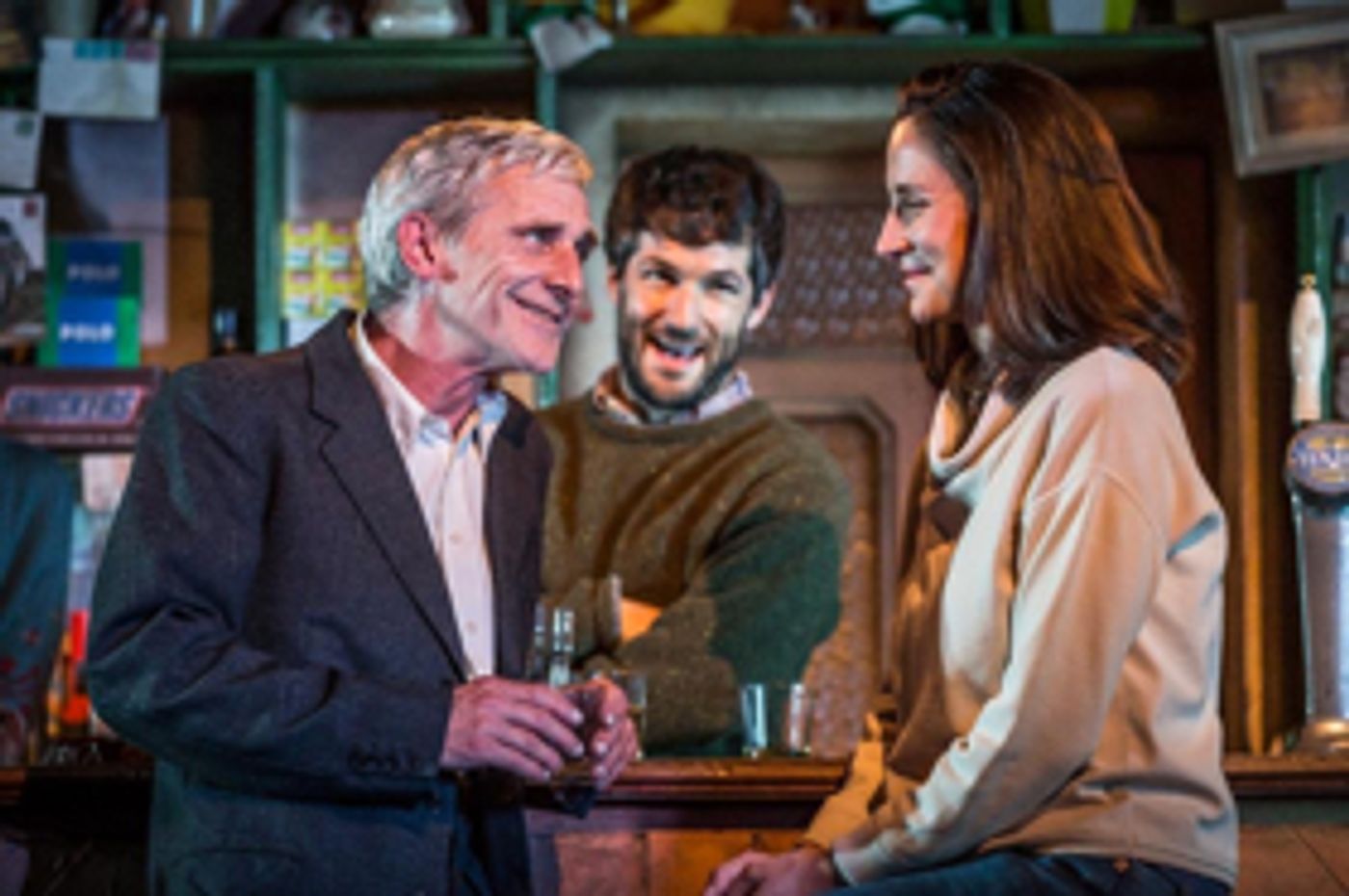Review: THE WEIR, Richmond Theatre

![]() In essence, there is not much to Conor McPherson's intimate play; four men drink in a remote Irish pub, entertain a female newcomer with ghost stories and then leave. However, The Weir is a taut and unexpectedly gripping insight into rural communities, isolation, loss and loneliness.
In essence, there is not much to Conor McPherson's intimate play; four men drink in a remote Irish pub, entertain a female newcomer with ghost stories and then leave. However, The Weir is a taut and unexpectedly gripping insight into rural communities, isolation, loss and loneliness.
The simplicity of the setting is deceptive, as the piece is rich in dialogue and exploration into the characters of the play. It is a story about telling stories, as the audience feels as though it is eavesdropping on the action on stage. The genius of the writing of this play is in the quiet banality of the conversations between the cast. Sean Murray's grumpy pub regular Jack, props up the bar with his shy friend Jimmy, chatting about the weather, the future German tourists and the health of Jimmy's mother.
Murray gives a very nuanced and sensitive performance portraying the sad loneliness behind the curmudgeonly manner of Jack. He is the character we learn the most about and his retelling of a story of lost love is simple yet heartbreaking. There is a lovely chemistry between him and Sam O'Mahony's quiet and taciturn barman Brendan; their banter is totally believable, the dullness of their conversations is strangely enthralling.
John O'Dowd is quietly awkward as Jimmy, with his thick beard and long knitted cardigan, he is a man whom life has simply happened to. O'Dowd has a self-conscious stage presence, which is perfectly suited to a character who lacks any real direction and purpose.
The arrival of village entrepreneur Finbar, played with loud bluster and banter by Louis Dempsey, disrupts the stillness of the evening with the introduction of a female newcomer to the village. There is a palpable sense of resentment at his character's success in life, contrasting bitterly with the stilted and unfulfilled existences of the other men. Finbar is not initially a likable character, with his showy beige suit and flashing his cash at the bar, but develops and adds great depth and sympathy to his background.
Natalie Radmall-Quirke is understated and natural in her portrayal of young mother Valerie, although her very subtle Dublin accent strays occasionally across the Irish Sea. Her feminine presence is initially disconcerting in an environment where the ladies toilets are out of action as there is no call for them to be repaired.
This is a subtle celebration of the art of storytelling and also a delicate exploration of the male psyche living without female companionship. It's no coincidence that Finbar is the only married character, with all the others single. Jimmy lives with his mother, but Valerie is the first younger woman that they have encountered for some time. As the evening progresses, there is quiet sadness and tragedy at opportunities lost and lives wasted.
Madeleine Girling's design is beautiful and understated, with lovely details of the remote Irish pub such as postcards and beer mats pinned around the back of the bar. Local photos hang above the wood burner, leaving soot marks on the wall as they are removed. Lee Curran's lighting is low and atmospheric, with shadowy corners and hanging lights from overhead. This only adds to the intimacy of the setting and the subtle shifts as the cast tell their stories are haunting and highly effective.
A chill whips through the bar every time the door is opened, heightened by the whistling wind sound effects. However, the addition of violin strings at poignant moments is a little distracting and unnecessary, as the stories carry enough weight on their own.
Quietly devastating and wonderfully acted, this is a beautifully pitched and haunting revival of a play that must now surely be classified as a modern classic.
The Weir is at Richmond Theatre until 3 March then moves to Cambridge Arts Centre
Photo Credit: Marc Brenner
Reader Reviews
Videos

